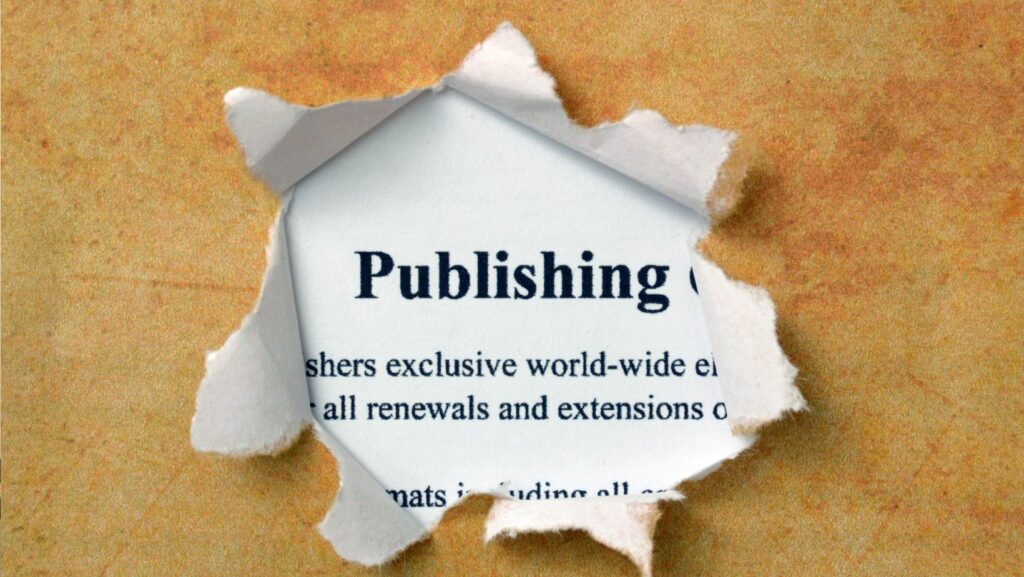Indie Publishing Companies
- Empowerment of Authors: Indie publishing companies offer authors greater creative control and a supportive environment, allowing them to retain rights and shape their work without external pressures.
- Diverse Storytelling: These companies are vital in promoting underrepresented voices and unique narratives, enriching the literary landscape with diverse genres that mainstream publishers often overlook.
- Financial Advantages: Authors benefit from higher royalty rates and flexible pricing strategies, making indie publishing a financially viable alternative to traditional publishing.
- Innovation and Technology: The rise of digital platforms and advancements in print-on-demand technology have allowed indie publishers to streamline distribution and reach global audiences more effectively.
- Challenges in Marketing and Distribution: Indie publishers face hurdles such as limited distribution networks and marketing budgets, requiring them to adopt creative strategies to enhance visibility and connect with readers.
- Future Trends: The indie publishing landscape is evolving with trends like sustainable practices, increased collaboration among publishers, and hybrid publishing models, which adapt to changing reader preferences and industry dynamics.
 In a rapidly evolving literary landscape, indie publishing companies are shaking up the traditional publishing model. These small but mighty firms empower authors by offering more creative control and a direct path to market. As the demand for diverse voices and unique stories grows, indie publishers are stepping in to fill the gap left by mainstream publishers.
In a rapidly evolving literary landscape, indie publishing companies are shaking up the traditional publishing model. These small but mighty firms empower authors by offering more creative control and a direct path to market. As the demand for diverse voices and unique stories grows, indie publishers are stepping in to fill the gap left by mainstream publishers.
Indie publishing isn’t just a trend; it’s a movement that’s redefining how books are created and distributed. With their innovative approaches and personalized services, these companies are attracting a new generation of writers eager to share their work. For aspiring authors and avid readers alike, understanding the role of indie publishers is essential in navigating today’s vibrant literary scene.
Overview of Indie Publishing Companies
Indie publishing companies significantly influence the literary market by presenting a viable alternative to traditional publishing houses. These small firms specialize in offering authors more creative freedom and flexible publishing options. Indie publishers facilitate a unique platform for writers, enabling them to express diverse stories and perspectives often overlooked by larger entities.
Indie publishing has become a distinctive movement within the literary community. These companies encourage innovation and experimentation in storytelling, providing a space for niche genres and underrepresented voices. Unlike traditional models that may prioritize profitability and mainstream appeal, indie publishers pursue projects driven by passion and artistic merit.
Independent publishing houses operate in various forms, from micro-presses focusing on specific genres to larger independent companies that compete directly with established publishers. Each offers tailored services catering to individual author needs, such as developmental editing, marketing support, and print-on-demand options.
The emergence of digital technology has further empowered indie publishing, allowing companies to reach a global audience without substantial upfront costs. E-books, audiobooks, and online platforms enable authors to distribute their work efficiently and effectively, increasing visibility and accessibility.
A recent report by the Independent Book Publishers Association indicated that indie publishers account for approximately 20% of the U.S. book market, showcasing their growing influence. This demographic shift highlights the importance of indie companies in cultivating a diverse literary landscape and promoting new talent.
Through innovative practices and a commitment to inclusivity, indie publishing companies continue to shape the future of literature. They provide essential support for authors seeking to navigate the complexities of the publishing world, ultimately enriching the reading experience for a broader audience.
Benefits of Indie Publishing
Indie publishing offers numerous advantages for authors and readers alike. These benefits enhance the overall publishing experience, making independent companies an appealing choice in the literary landscape.
Creative Control
Creative control remains a primary benefit of indie publishing. Authors retain the rights to their work, allowing them to shape their stories without external constraints. They decide on cover designs, content edits, and formatting, ensuring that the final product reflects their vision. This autonomy encourages unique storytelling and diverse genres that might be neglected by traditional publishers. With complete ownership, authors can also choose when to publish and how to promote their work, further aligning their projects with personal and artistic goals.
Financial Independence
Financial independence is another significant advantage of indie publishing. Authors receive higher royalty rates compared to traditional publishing, often retaining up to 70% of the profits from their sales. This model rewards authors for their efforts while minimizing the financial risks typically associated with self-publishing. Indie publishers often provide flexible pricing strategies, allowing authors to adjust book prices based on sales performance and market trends. Increased control over revenue generation encourages authors to build sustainable careers independent of traditional publishing constraints.
Challenges Faced by Indie Publishers
Indie publishers encounter several challenges that impact their operations and growth. These obstacles can affect their ability to compete in the rapidly evolving literary market.
Distribution Issues
Indie publishers often struggle with distribution challenges due to limited partnerships with major retailers. They lack the extensive networks that traditional publishers possess, which hampers access to bookstores and libraries. Many indie publishers rely heavily on online platforms for distribution, but competition with larger publishers often leads to less visibility. Additionally, shipping costs and logistics present practical hurdles that can affect profit margins. Securing shelf space in physical stores remains difficult, making it essential for indie publishers to explore creative distribution strategies to reach wider audiences.
Marketing and Visibility
Marketing presents a significant hurdle for indie publishers, requiring them to implement innovative and cost-effective strategies. Without the marketing budgets typical of larger publishers, indie companies must rely on grassroots efforts, social media, and author platforms to promote their books. They frequently engage with niche markets and utilize targeted advertising to reach specific reader demographics. However, with the vast number of titles flooding the market, achieving visibility remains a challenge. Indie publishers often adopt collaborations with authors and influencers to enhance promotional efforts. Despite these challenges, indie publishers continue to find creative ways to connect with their readership and build loyal communities.
Notable Indie Publishing Companies
Indie publishing companies play a crucial role in diversifying the literary landscape. Several notable firms exemplify the impact and innovative spirit of this movement.
Company Profiles
- Quirk Books
- Quirk Books specializes in unique and unconventional titles, focusing on categories like pop culture, humor, and graphic novels. Known for its creative marketing strategies, Quirk Books captivates readers through memorable designs and immersive storytelling.
- Akashic Books
- Akashic Books is recognized for its commitment to publishing diverse voices and marginalized authors. Its catalog includes significant literary works that reflect urban culture and social justice themes, aiming to challenge mainstream narratives.
- Coffee House Press
- Coffee House Press emphasizes innovative literary works that push boundaries. They support experimental authors and focus on quality over quantity, allowing each title to receive personalized attention and promotion.
- Small Beer Press
- Small Beer Press publishes fiction and non-fiction that often goes against mainstream trends. The company fosters a community of readers and authors who appreciate thoughtful content and unique perspectives.
- Blue Moon Publishers
- Blue Moon Publishers prides itself on providing personal services for authors, including editing and marketing. They focus on helping new and emerging writers find their audience while maintaining a strong sense of individual styles.
- Hugh Howey
- Hugh Howey’s “”Wool”” series gained immense popularity after his self-publishing efforts. His success showcased the potential of indie publishing, with his titles becoming bestsellers without traditional publishing backing.
- Andy Weir
- Andy Weir’s debut novel, “”The Martian,”” began as a self-published work that captured the attention of readers and eventually led to a major publishing deal and a successful film adaptation. This exemplifies how indie publishing can pave the way for broader recognition.
- Rachel Cusk
- Rachel Cusk, initially rejected by traditional publishers, found success through indie channels. Her unique narrative style garnered a dedicated readership, showcasing the importance of alternative avenues for unconventional authors.
- Colleen Hoover
- Colleen Hoover grew her fanbase through self-publishing platforms, eventually becoming a prominent name in contemporary fiction. Her success illustrates how indie publishing fosters connections with readers through direct engagement.
- Tamsyn Muir
- Tamsyn Muir’s debut novel, “”Gideon the Ninth,”” gained traction via indie publishing before becoming a phenomenon in the fantasy genre. Her success demonstrates the capabilities of indie platforms in facilitating unique stories that resonate widely.
Future Trends in Indie Publishing
Future trends in indie publishing focus on technology integration, increased collaboration, and sustainability. Technology drives indie publishing, with advancements in artificial intelligence, blockchain, and print-on-demand services enhancing production and distribution. These technologies streamline processes, reduce costs, and provide authors with tools for personalized marketing strategies.
Collaboration between indie publishers fosters innovative author partnerships. Joint marketing efforts, cross-promotion, and shared resources can amplify visibility and reach wider audiences. This collaborative spirit resonates with the community-driven nature of indie publishing, enabling authors to connect with like-minded individuals and share creative resources.
Sustainability emerges as a significant trend in the industry. Many indie publishers prioritize environmentally friendly practices, such as using recycled materials and minimizing waste. This appeal to conscious consumers aligns with a growing demand for ethical production and resonates with readers who value sustainability.
Diversity remains crucial as indie publishers continue to champion underrepresented voices. By promoting a wide array of genres and perspectives, these publishers respond to reader demand for authentic storytelling. They embrace niche markets, allowing authors to explore unique themes and experiences previously overlooked by mainstream publishers.
Hybrid publishing models gain traction, blurring the lines between traditional and self-publishing. Authors increasingly seek a combination of indie and traditional routes, enabling them to access the benefits of both systems. This trend encourages flexibility in publishing choices and fosters creativity.
 Engagement with readers through social media and crowdfunding platforms shapes the way indie publishers operate. Publishers leverage these channels to connect directly with audiences, gather feedback, and generate pre-launch interest. This engagement approach enhances community building and fosters reader loyalty.
Engagement with readers through social media and crowdfunding platforms shapes the way indie publishers operate. Publishers leverage these channels to connect directly with audiences, gather feedback, and generate pre-launch interest. This engagement approach enhances community building and fosters reader loyalty.
The future of indie publishing hinges on adaptability and innovation. As the landscape evolves, indie companies will continue reshaping the literary world, prioritizing author empowerment and enriching the reader experience. By embracing these trends, indie publishing stands poised to remain a vibrant force in the book industry.
Redefining the Literary Landscape by Offering Authors the Freedom to Express Their Creativity Without Constraints
Indie publishing companies are redefining the literary landscape by offering authors the freedom to express their creativity without constraints. Their commitment to diverse voices and innovative storytelling fosters a rich tapestry of literature that resonates with readers seeking fresh perspectives.
As technology continues to evolve, these publishers are finding new ways to connect with audiences and navigate challenges in distribution and marketing. The future looks bright for indie publishing, with its emphasis on adaptability and community engagement driving the movement forward.
For aspiring authors and readers alike, indie publishers represent a dynamic force that enriches the world of literature and champions the stories that deserve to be told.



